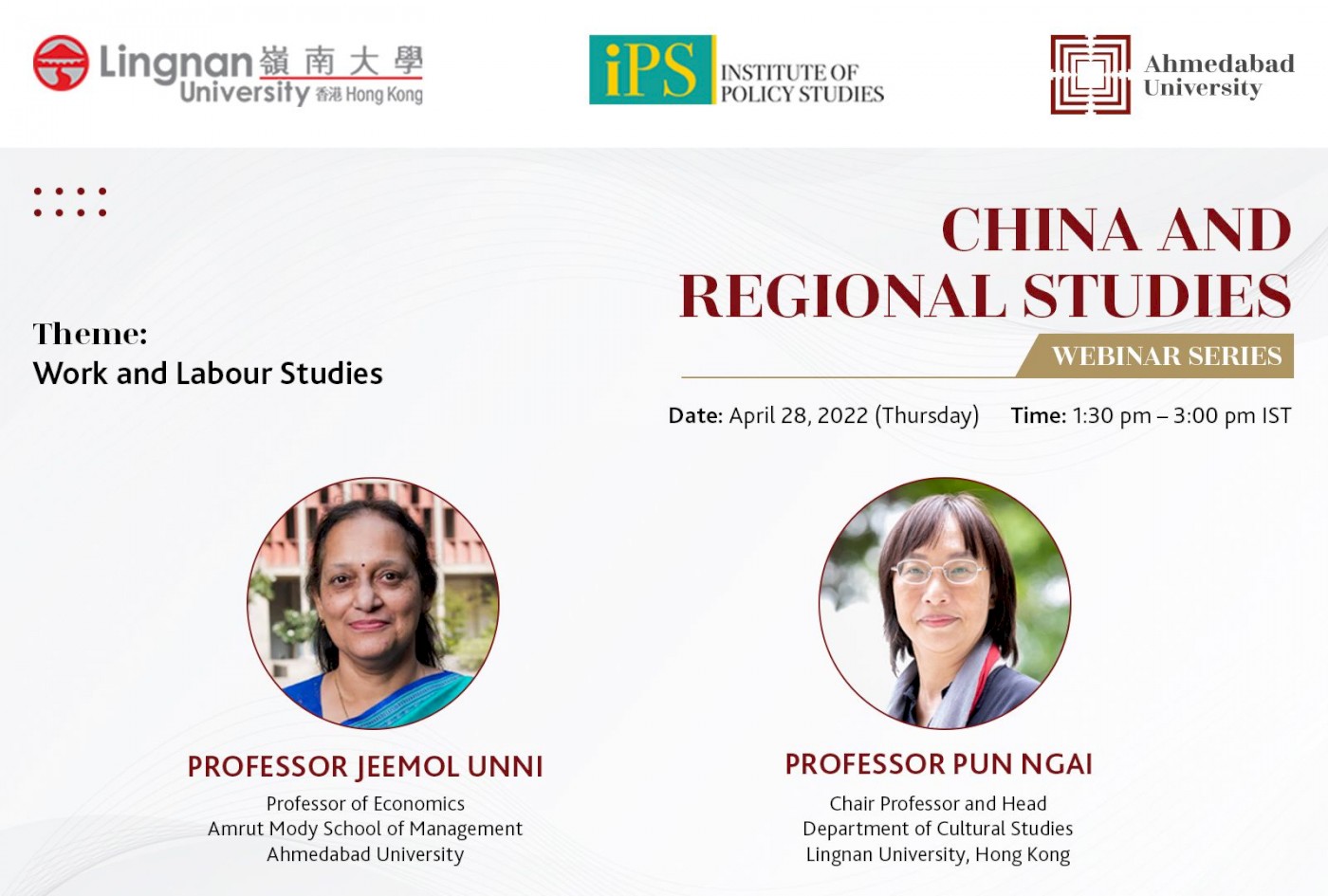China and Regional Studies Webinar Series: Work and Labour Studies

Lingnan University and Ahmedabad University are jointly organising a China and Regional Studies Webinar Series in 2022. The series taps into the topical nature of China and India relations and the experiences of the two countries in key areas that can be fruitfully compared. The webinar series is designed to disseminate and explore the intellectual potential of research fields for future collaboration. The topics include youth aspirations, urban development, cultural practice, and the political economy of gender.
Work and Labour Studies
Date: 28 April 2022 (Thursday)
Time: 4:00 pm - 5:30 pm (Hong Kong time, GMT+8)
Online Registration: https://lingnan.asia.qualtrics.com/jfe/form/SV_1MPc4skAyTc1V7U
Speakers
Professor Jeemol Unni
Professor of Economics,
Ahmedabad University, India
Topic: Women’s Work Participation in India
Participation of women in the work force is very low in India. It has been a matter of concern that workforce participation of women, in general, and in urban areas, particularly, has been rather low. It is an even greater puzzle that the participation rates of women have been falling over the past decades, particularly in rural areas. This poor participation is partly due to the women’s double burden of work, and partly to their invisibility and consequent lack of recognition in the statistical system. The consequence of the latter two factors is that gender issues in women’s work do not find the requisite space in the policy domain, further weakening their economic empowerment. In this lecture, we will discuss patterns of women’s work participation, her prominence in informal work and its consequences, reasons for the low work participation and possible policy options to encourage women to enter the work force.
Professor Pun Ngai
Chair Professor and Head of Department of Cultural Studies,
Lingnan University, Hong Kong
Topic: Confronting global infrastructural capitalism: the triple logic of the ‘vanguard’ and spatial and class contradictions in China’s high-speed rail program
We take infrastructure as a ‘keyword’ in foregrounding the production and the reproduction of contemporary capitalism as well as its complexities and contradictions. To tease out the capitalist dynamics of the contemporary moment as infrastructural capitalism, this paper moves beyond a dichotomous constellation of the logic of capital and the territorial logic of power to argue how a triple logic- capital, power and culture informs the cultural politics attempting to simultaneously resolve the economic crisis and glorify China’s fast speed capitalism. As the vanguard of Chinese infrastructure, the high-speed rail spearheads Chinese spatial economic system towards not an alternative to capitalism but, at best, a variegated form of moving capitalism we call infrastructural capitalism. Illuminating the political role of the infrastructural projects in creating invisible social contradictions, this article highlights a wide array of affected working-class masses who take individual and collective actions that result in the reversion of ‘the vanguard’, dissolving the condensation of the materiality of infrastructural capitalism into the global assemblage of unpredictable but inescapable contradictions driving China into global imperial rivalries and class conflicts.



